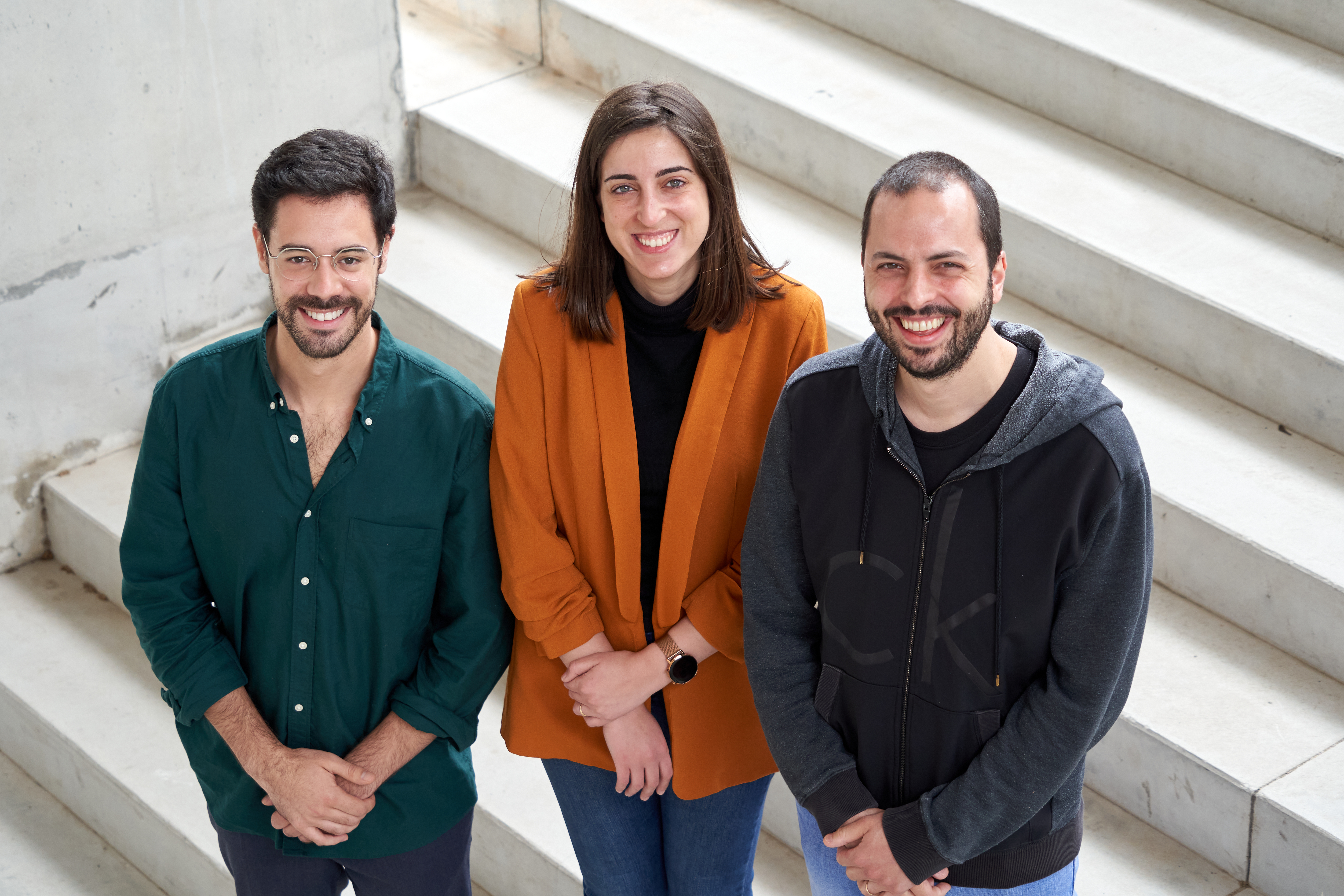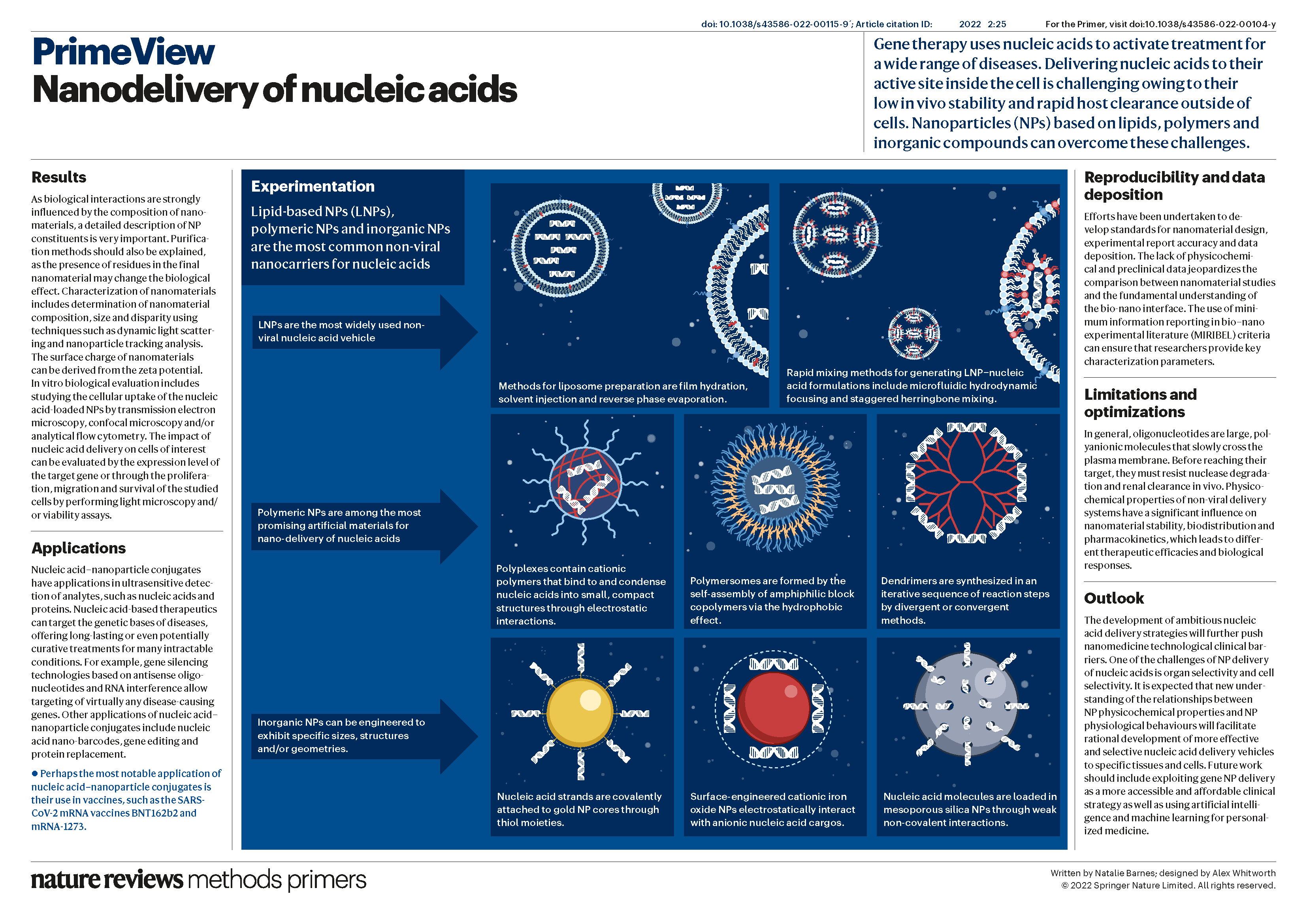The group led by researcher João Conde, Cancer Nanomedicine, published a methodology for the therapeutic delivery of nucleic acids (DNA and RNA) through nanomaterials in a Nature journal. Bárbara Mendes and João Conniot, postdoctoral researchers, were the first authors of the publication and spoke with us about the importance of defining methods in this emerging area.
 João Conniot, Bárbara Mendes and João Conde
João Conniot, Bárbara Mendes and João Conde
What led you to prepare and publish this review?
Bárbara Mendes (BM) :There is a growing need to develop safe, specific, and cost-effective strategies for the delivery of gene therapy biomolecules.This review discusses how to design smart nucleic acid delivery methods and the groundbreaking advances in this field using nanotechnology-based approaches for improving the treatment of a wide range of diseases.
Why is this important?
João Conniot (JC): The development of ambitious nucleic acid delivery strategies will further push nanomedicine technological clinical barriers. Therefore, it is crucial to outline some of the general design considerations of nucleic acid delivery nanoparticles. With this review it is possible to better understand the relationships between nanoparticles physicochemical properties and its physiological behaviors. This will facilitate rational development of more effective and selective nucleic acid delivery vehicles to specific tissues/cells.
Can you use an analogy to help us understand this field?
JC: This review is a guideline for the design and development of nucleic acid delivery approaches. Briefly, nanomedicine platforms can carry nucleic acids that strategically target relevant players of the specific cell and tissues in the organism. For instance, the most notable application of nucleic acid-nanoparticle conjugates is their use in vaccines, such as the SARS-CoV-2 mRNA vaccines, which were crucial in the COVID-19 pandemic.
What questions remain to be asked in this field that your group will pursue?
BM: Future work on this field should explore gene delivery as a more accessible and affordable clinical strategy as well as employing predictive models using artificial intelligence and machine learning for personalized medicine”.
This research was performed in collaboration with Technion — Israel Institute of Technology, iChEM from University of Science and Technology of China and the Center for Nanomedicine and Department of Anesthesiology from Harvard Medical School.
The full article, Nanodelivery of nucleic acids, can be found in Nature Reviews Methods Primers journal. It was also highlighted by the journal in the feature PrimeView (below)
